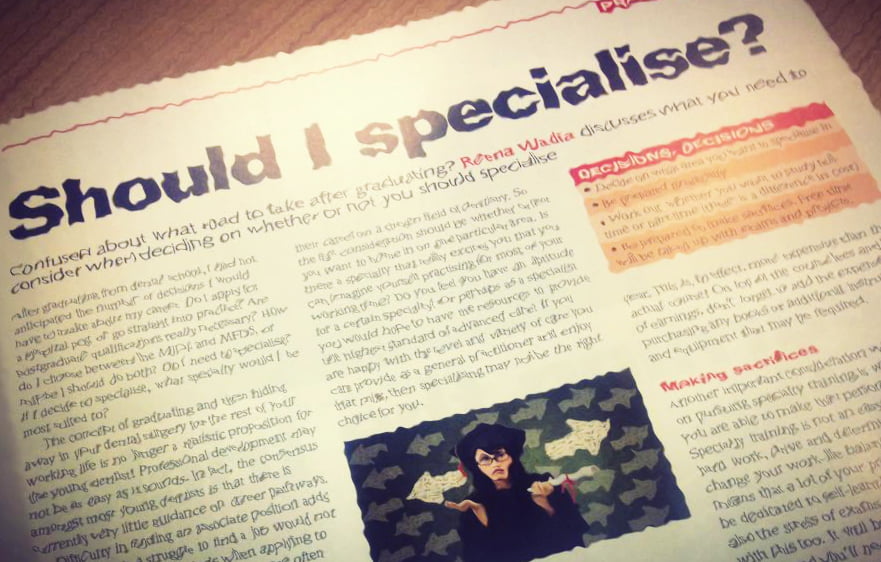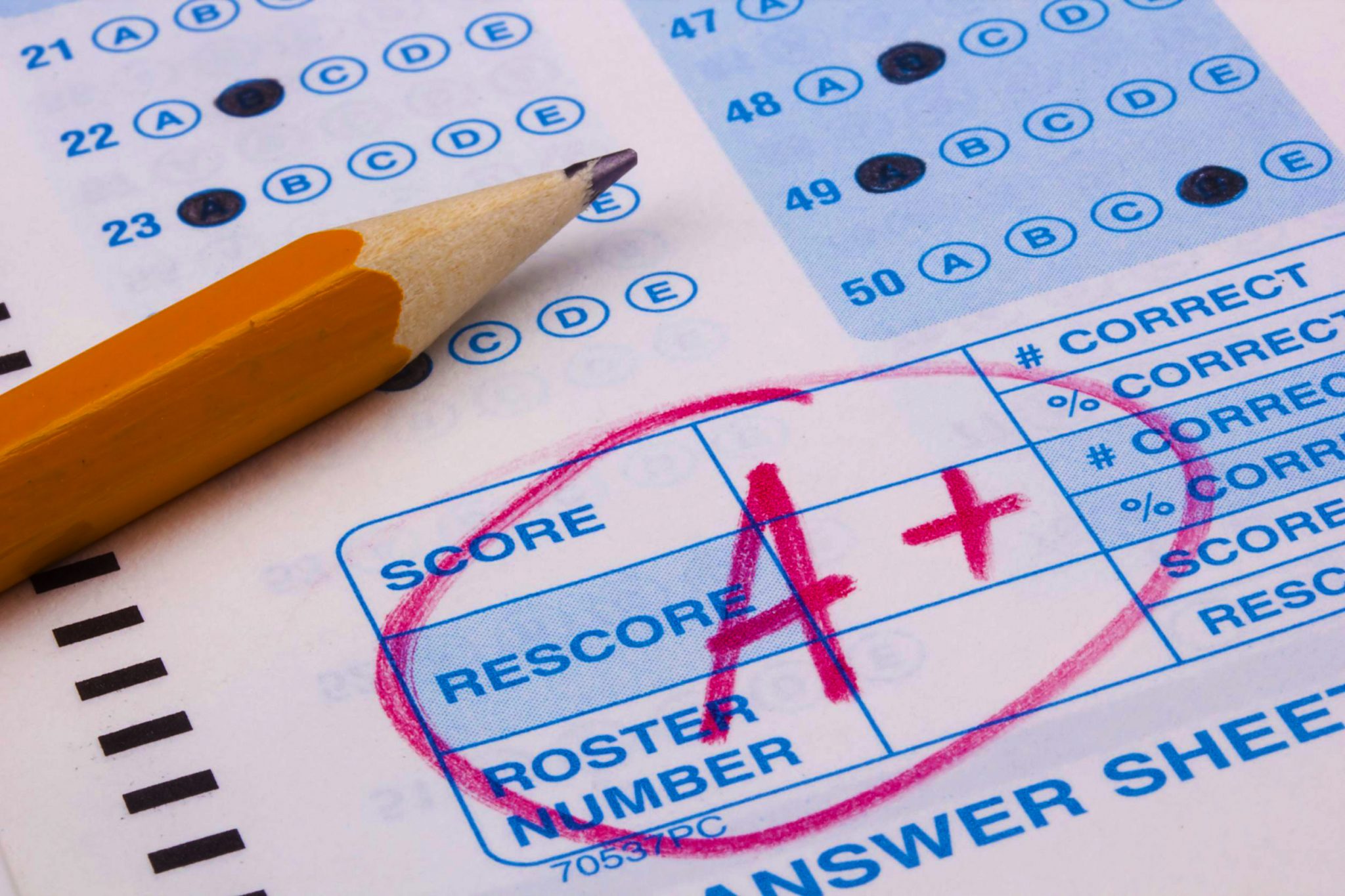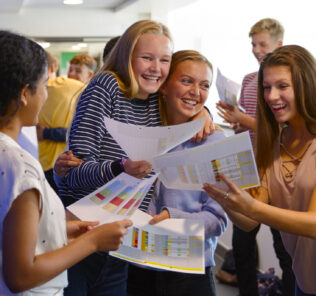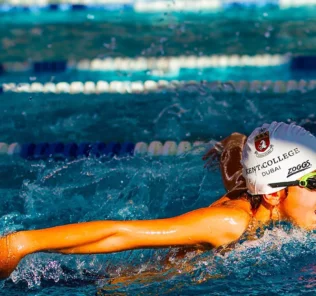Acing IB and A Level, & The Last 2 Years of School
Specially commissioned by SchoolsCompared.com, and with the new school year fast approaching, we bring you the Insider’s Guide to getting the best from Secondary education – whether by pushing your grades by up two places or knowing what to do if things start to go wrong.
On their own, these will not get you the results at IGCSE and A Level. That takes hard work, passion, commitment and talent. But you can have all of those in abundance and, without working smartly, or if things go wrong, find yourself not meeting your potential.
On their own too these will not guarantee an A* ((or equivalent), but some of these hints, used effectively, will enable you take a potentially failed paper to a pass, or a B grade to an A* or equivalent under the new marking 1-9 marking scheme.
Other pieces of advice may seem obvious – but what is obvious is not always actioned.
The following have been provided to us by a panel of British examiners and teachers using advice in many cases they pass to their own students.
What comes across in all of the following is the following:
- It is not what you know – but what you understand.
- Love your subject(s)
- Get organised
- Know some things a lot – know everything a little.
- If things are going wrong – there are options
In some of these areas the advice is controversial – and just because we list it here does not mean that we uniformly agree with it. Keep in mind, that any advice is subjective. What is right for one student, will invariably not be right for another.
You are unique. Use the following as a toolbox to dip into and out of to maximise the chance of you getting the results at IGCSE and A Level you aspire to.. Gain confidence from those things you can do early to strengthen your learning – but know too that there are always solutions if or when things go wrong.
Tips 1 – 5: The Early Days of Learning
Insider Tip 1:
Make sure that you have chosen the right subjects – you have only 4 weeks and counting to put things right if you have made a mistake.
In most cases you will have invested, in partnership with teachers, in making the right decisions, but mistakes do happen.
Schools won’t like it, but if you are certain you have made a mistake in any one of the subjects that you have chosen you must request to change options at A Level within 4 weeks.
Our experts think that even then, you will only just have the time to catch up.
Why would you want to change? This could be for a variety of reasons – finding mathematics elements incomprehensible, knowing that you are never going to passionate about the subject, being bullied – ultimately the reasons matter less than being sure you have made a mistake.
You have a very limited time to act. Do not be afraid to act – it is better to change course now than wasting two years on a subject in which you will fail, or which will damage your enjoyment of learning on other subjects.
To get the results at IGCSE and A Level you need to be studying the right subjects.
Insider Tip 2:
Broaden your horizons to stand-out and find your own path.
Start each subject by researching between three and five books that are not on the syllabus but related to it. Amazon and Google are your friend. Get to know these books – and love them. Make your choices wisely. It’s hard at the beginning of a course to choose well – but look out for controversial books with something to say. Look at reviews.
Order these books as soon as possible from Day One you start your studies. Read them in your spare time. They can include literature/science fiction, poetry – what they are does not matter as long as there is a link, however indirect, with your subject – and can provide you with a lens you can read back into what you are learning.
Buy a separate journal as your “Quote Book” for each subject – fill it with every inspiring quote, or idea you read in each subject from these books – and those from your core subject reading.
This, for two of our panel, is the single biggest, most powerful secret you can be given starting your courses – and securing top tier results at IGCSE and A Level.
Insider Tip 3
Dealing with infinite information – work the 3:15 rule
When you eventually come to revising, no one can know everything ever written about every subject. The stress that believing you need to will impair your ability to shine.
From Day One work through each topic by finding the 15 core facts per topic area that make it come alive for you – and then define 3 alternative ways of looking at those facts that make up the bigger picture.
Be aware that, with few exceptions outside the Sciences, there are many perspectives on exactly the same facts.
Even in the Sciences, and Mathematics, build awareness of cutting edge research – often this will question even basic elements of knowledge. In Science, New Scientist is your friend – as is reading around the edges of sub atomic and Quantum theory and its implications.
In Literature, for example, just because, the vast majority of academics may paint Shylock in the Merchant of Venice as a “bad” man to be laughed at – does not mean that this is the only view – or the right one. Could in fact he be deeply misunderstood, an outsider – designed to function as a lens on the damage caused by revenge?
To get the results at IGCSE and A Level you need to thinking critically.
Insider Tip 4
Having a Life does not mean stopping thinking – and ECAs are not as important as they may tell you…..
Controversially, our panel advises that however politically incorrect, the most successful candidates for university are more likely to be those that have an in-depth passion for their subjects – and who have in some way invested that passion in their broader interests.
Universities, rightly or wrongly, are far less interested if you like stamp collecting, dancing, playing the oboe, or climbing mountains. Even if you are outstandingly gifted in these areas, if your ambition is university, they must take third and fourth best behind your studies.
Equally, they may not particularly interested if you have traveled in the holidays or do volunteer works at a hospice.
If you are studying history, however, and spend your holidays at archaeological sites in order to solve some problem from your studies that vexes you – that will make you shine.
As for breaks away from “work”, start to think of studying not as a chore, but as something you enjoy. Life does not take place outside study – studying is just as much a part of a good life as other elements that make up your days, weeks and year.
To get the results at IGCSE and A Level living is something you do at school, not outside it.
Insider Tip 5
Specialising too early could cost you dearly
Avoid the temptation to study Law, business, Accountancy and other subjects directly related to your career ambitions to be a Lawyer, Banker, Entrepreneur or CFO.
The vast majority of universities prefer students who study traditional subjects – English, History, Mathematics and so on. Specialisation should, for many universities occur later. There are some exceptions – psychology, for example, is seen in high regard as a bridging subject between the Arts and the Sciences.
Never study two similar subjects – business studies and economics for example. Many universities will treat them as a single subject.
Getting the results at IGCSE and A Level in the wrong subjects could cost you dearly.
Tips 6 – 9: Getting Organised
Insider Tip 6
You will not remember everything.
Thinking about the sheer volume of information you will be presented with it is easy to panic.
It is equally easy to become complacent and think that you can read books later to catch up.
To avoid the latter, invest in a Dictaphone. Use it to record your thoughts and ideas as they happen. Some teachers will be open to you recording lessons where information is being presented.
Write up your notes each evening.
Getting the results at IGCSE and A Level requires keeping on top of your workload every day.
Insider Tip 7
Being organised will make the difference between succeeding or failing. Precis information.
Get files, dividers, stickers, colour code everything. Do whatever works for you. Reduce information to the key points and bullet them.
Always pull out the facts and ideas that inspire you. In both Arts and Sciences write down examples to bring facts and formulae to life.
You do not need to know every fact. You do need to understand the meaning.
Find interesting quotes.
Your aim must be to have a clear, complete, structured, comprehensible, manageable and inspiring set of notes at the end of your course for each topic that will form the basis for your revision.
Imagine the horror of being faced with exams without any material to revise from…
Top results at IGCSE and A Level inevitably come to those who are organised…
Insider Tip 8
No man or woman is an island.
Learning works best when it is shared.
But a best friend is worth more than 20 acquaintances.
Try and find one person you can trust and share your learning journey with. Build a relationship in which you can work together to help each other and leverage each other’s strengths and weaknesses.
Never worry whether your peers are better or worse than you are. This is your journey. On leaving school you may never see them again.
Getting the results at IGCSE and A Level means becoming an independent thinker on your own journey – but sharing that journey effectively will empower your success.
Insider Tip 9
Organise your Summer work and industry experience placements early
Do not wait to apply for Summer placements to the last minute. The value of work experience in a flagship blue chip company cannot be overestimated. In some case it could open the doors to a direct from school employment offer that allows you to study for a degree whilst in work.
Direct work experience will also set you apart later when you begin to apply for jobs after university. It is easy to forget whilst at school that learning is not an end in itself. If you are set on a career, find the best employers in the sector and write to them.
Applying to study law with two years holiday work experience at a top legal firm highlighted on your application will demonstrate your commitment.
Results at IGCSE and A Level are part of a bigger picture – your career ambitions, course trajectory, and understanding of the world outside school.
Tips 10-13: Preparing for and taking Examinations
Insider Tip 10
Past Papers are extremely important
Never discount past papers because you will not face the same questions. Your aim should be to have completed at least papers from the last five years. Whilst questions change, there will always be common topics. Completing these also build confidence. Find completed papers showing how to achieve top scores and understand what you need to do to up your game.
Examination Boards do publish the making criteria used each year.
There are exceptions. The changes to IGCSE and A Level are seeing significant changes to course content. However, past papers will still remain of value.
Getting the results at IGCSE and A Level requires practice and an understanding of exam technique. Practice makes perfect.
Insider Tip 11
Exam questions are often not all that they seem
In examinations, try and answer the question that you think they are really asking, could be asking, should be asking – and the question that is, on the surface, being asked.
5 minutes thinking about the question before answering is not wasting time, but making time for a thoughtful, original and sophisticated answer that will stand out.
Top tier results at IGCSE and A Level come with original thinking
Insider Tip 12
Examiners are more interested in your showing your intelligence than ability to remember facts.
Faced with questions, don’t just jump in with answers. Always, first, ask yourself whether you can answer questions with other questions.
Have the following paragraph openers in your toolbox:
Arguably…..
Would you….?
Why…..?
If….. then why…..
If you have a quote that fits the question – open with it.
In all subjects, including Mathematics and the Sciences, even if you do not know the answer, show what you do know, including how you are trying to address it.
Examiners want to help you get the results at IGCSE and A Level – show them you are half way there and you will receive valuable points.
Insider tip 13
There are more than three sides to every story
In essays, there is no harm in playing devil’s advocate. Never be scared to pick a fight? Be a warrior in your answers not an onlooker. Stake out a position and fight for it. Open with a bang. Close with a question leaving the examiner wanting more.
In mathematics and sciences, find links. Think about how things work together. Draw from other Science to shed light on a problem.
Getting the results at IGCSE and A Level depends less on facts than caring and being impassioned about the answer you give.
Tips 14 – 20 When everything is going wrong
Insider Tip 14
Go backwards to go forwards
The nuclear option, and an absolute last option, is to repeat a Year. Pride comes before a fall – if, for whatever reason, you are not going to make it, this does remain a last resort option. Schools will make this possible only in very rare cases and you will need to present valid arguments why – but when all is at its blackest it is an option to be explored.
In some cases you may wish to explore changing school.
Getting the results at IGCSE and A Level may not always follow a direct path.
Insider Tip 15.
Teachers are your friend.
Teachers (and parents) are your friends NOT your enemy. The earlier you ask for your help, the more time you give them to help. Asking for help is not a weakness, but a strength. If you do not understand something, ask for it to explained. Often, later knowledge will depend on understanding earlier blocks of knowledge.
Getting top results at IGCSE and A Level means understanding that if you need help you must have the courage to ask for it before it is too late.
Insider Tip 16
Private tutoring can fill in the gaps
A financial pressure for many parents, this should be a last resort. But in some subjects, and particularly for those struggling in Mathematics and Sciences, extra tuition can provide the one-on-one space to grapple with problems that cannot easily be provided in the classroom or come easily working alone with text books.
Private tutoring does not need to be continuous. But finding a tutor you can call on for limited blocks of time early on is good preparation.
Getting the results at IGCSE and A Level may need asking for help from specialists
Insider Tip 17
Dropping a subject at A Level
Particularly if you have embarked on four A Levels and are struggling, there is no logical reason not to drop the fourth subject. Universities look for good grades in three subjects. Poor grades in four subjects will not count for you against a candidate with higher grades in 3.
Getting the results that matter at IGCSE and A Level may mean dropping a subject to do better in fewer. Less can be more.
Insider Tip 18
Don’t suffer in silence
Handwriting, Illness, dyslexia, personal circumstances, SEND – in many cases exam boards will make allowances, from providing more time to answer questions, or allowing the use of a laptop.
But you must work with teachers and schools to ensure that whatever can be done, is done and that schools have time to prepare your case.
Getting the results at IGCSE and A Level means ensuring that you are competing on a level playing field.
Insider Tip 19
Changing Schools
Even when things are not going wrong, but particularly when they are, there are many benefits from changing school, particularly before embarking on A Level or BTEC study at Sixth Form.
This can give you the chance to start again with a clean sheet, but also find a school that better meets your potential, ambitions, talents and subject interests.
There are many specialist Sixth Forms in British Schools to choose from – and which actively encourage children to join them for the final two years of study.
Getting the results at IGCSE and A Level may need you to make big changes, including to your school.
Insider Tip 20
Choose your First Choice university carefully – and remember Clearing is your friend
If you are set on a UK university, then think carefully when making your First Choice destination. Increasingly, with competition intense in the UK, universities, including many from the Russel Group, are awarding unconditional offers to those candidates that place them first.
If you do not meet the grades, there is currently significant over-capacity on clearing, something that is likely to remain in the foreseeable future. Even with lower than anticipated grades, it is likely that you will secure a place at clearing.
There will always be destination for your talents whatever your eventual results at IGCSE and A Level – never give up hope. Where one door closes another will always open…..


































































































Leave a Response